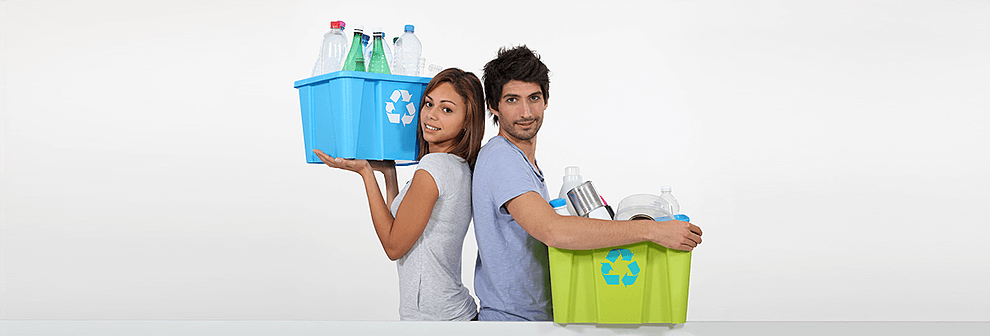New Approaches to Reducing Plastic Trash
Posted on 04/03/2025
Plastic pollution is one of the most pressing environmental issues of our time, with millions of tons of plastic waste ending up in our oceans, landfills, and natural habitats. Finding new and effective ways to reduce plastic waste is essential for protecting our planet's health. In this article, we will explore several innovative approaches to combatting plastic trash.
Biodegradable Plastics
Biodegradable plastics offer a promising alternative to conventional plastics. These materials are designed to decompose more quickly when exposed to natural environmental conditions, such as light, moisture, and microorganisms.
Types of Biodegradable Plastics
1. PLA (Polylactic Acid): Made from fermented plant starch (usually corn or sugarcane), PLA is widely used in food packaging and disposable tableware.
2. PHA (Polyhydroxyalkanoate): Produced by microorganisms from organic materials, PHA is compostable and often used in packaging and agriculture.
3. PBAT (Polybutylene Adipate Terephthalate): A flexible and compostable plastic used in bags and agricultural films.

Plastic-Eating Enzymes
Recent studies have discovered certain enzymes capable of breaking down plastics. These enzymes, produced by bacteria or fungi, can convert plastic into simpler compounds that are easier to process and recycle.
Notable Discoveries
1. PETase: An enzyme that degrades PET (polyethylene terephthalate), a common plastic used in bottles and textiles.
2. Leaf Branch Compost Cutinase (LCC): An enzyme that can break down various plastic types more efficiently than other known methods.
Plastic Alternatives
Replacing conventional plastics with sustainable materials is another crucial approach. Here are a few innovative alternatives:
1. Bamboo: A fast-growing, renewable resource used for products like cutlery, toothbrushes, and straws.
2. Mushroom Packaging: Made from mycelium, the root structure of mushrooms, this packaging is biodegradable and can replace polystyrene foam.
3. Edible and Water-Soluble Films: These films, made from natural ingredients like seaweed, can replace plastic wraps and reduce packaging waste.
Enhanced Recycling Techniques
Improving recycling processes can significantly reduce plastic waste. Advanced technologies can sort, clean, and recycle plastic more efficiently.
1. Chemical Recycling: Converts plastic waste back into its fundamental chemicals, which can then be reused to create new plastic products.
2. AI and Robotics: Using artificial intelligence and robotic systems in recycling facilities to improve the accuracy and efficiency of plastic sorting.
Community and Policy Initiatives
Engaging communities and implementing effective policies are essential for reducing plastic waste. Here are some successful strategies:
1. Plastic Bans and Taxes: Governments around the world are banning single-use plastics or imposing taxes to encourage the use of alternatives.
2. Community Clean-Up Programs: Local initiatives to clean up plastic waste from beaches, parks, and waterways.
3. Education and Awareness Campaigns: Informing the public about the impacts of plastic pollution and promoting sustainable practices.
Pros and Cons of Reducing Plastic Trash
Pros
1. Environmental Benefits: Reduces pollution in oceans, rivers, and landfills.
2. Economic Advantages: Creates new industries and job opportunities in sustainable materials and recycling sectors.
3. Health Improvements: Reduces exposure to toxic chemicals released by plastics.
Cons
1. Cost: Biodegradable plastics and sustainable alternatives can be more expensive to produce.
2. Infrastructure Limitations: Current recycling and waste management systems may need significant upgrades.
3. Public Resistance: Behavioral change can be slow, with some individuals and businesses reluctant to switch to alternatives.
Tips for Reducing Plastic Use
1. Avoid Single-Use Plastics: Opt for reusable items like water bottles, shopping bags, and utensils.
2. Support Brands with Sustainable Practices: Purchase from companies that use eco-friendly packaging.
3. Participate in Community Clean-Ups: Join local events to help reduce plastic pollution in your area.

Takeaways
- Innovating biodegradable plastics and plastic-eating enzymes offer promising solutions.
- Alternatives like bamboo and mushroom packaging are gaining traction.
- Advanced recycling techniques and community policies play a vital role.
- Reducing plastic waste has significant environmental, economic, and health benefits.
- Challenges remain, including costs, infrastructure, and public adoption.
Conclusion
In conclusion, reducing plastic trash is crucial for safeguarding our planet. By embracing new technologies, alternatives, and community initiatives, we can significantly diminish the devastating impact of plastic pollution. While challenges persist, the combined efforts of individuals, businesses, and governments can create a sustainable future free from plastic waste. It's essential to take action now and support innovative approaches to protect our environment for generations to come.
Latest Posts
UK's Environmental Issues: Waste Dumping
Effortless Household Recycling Ideas






